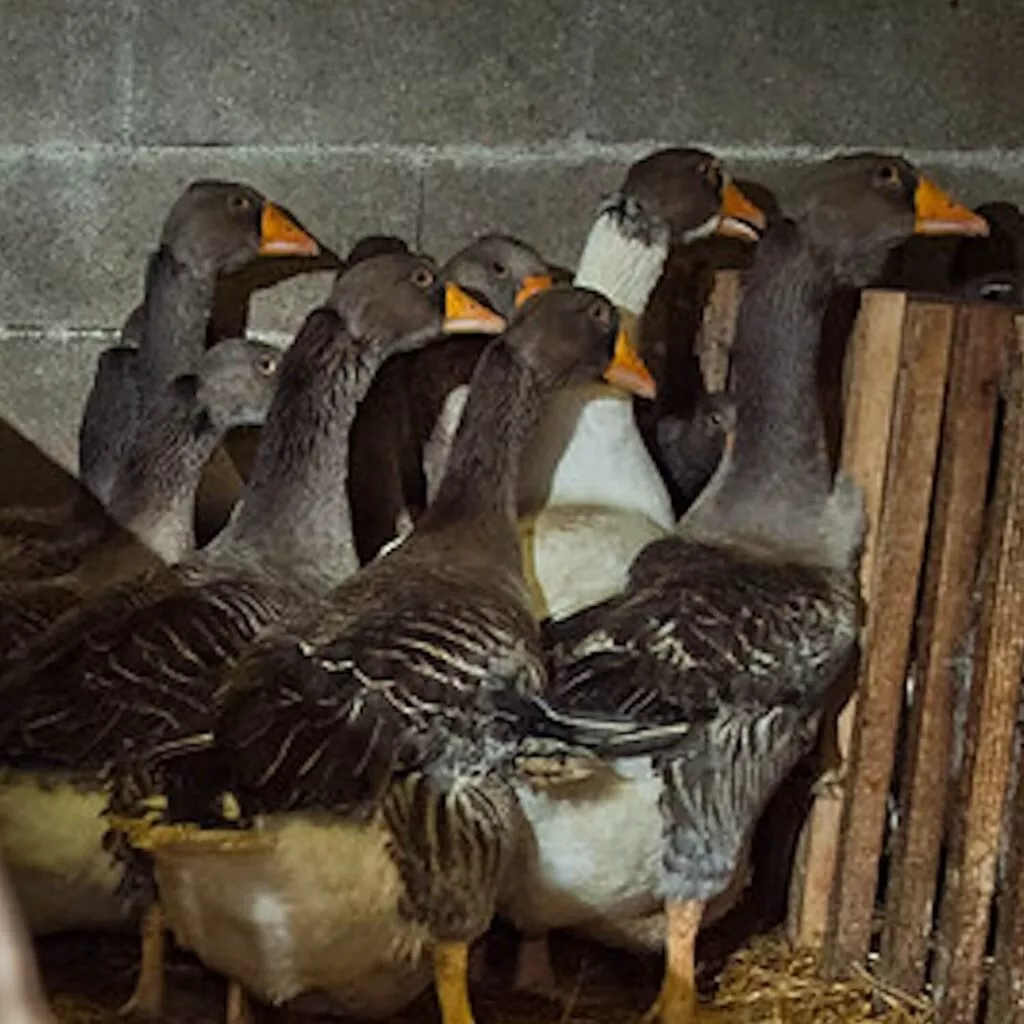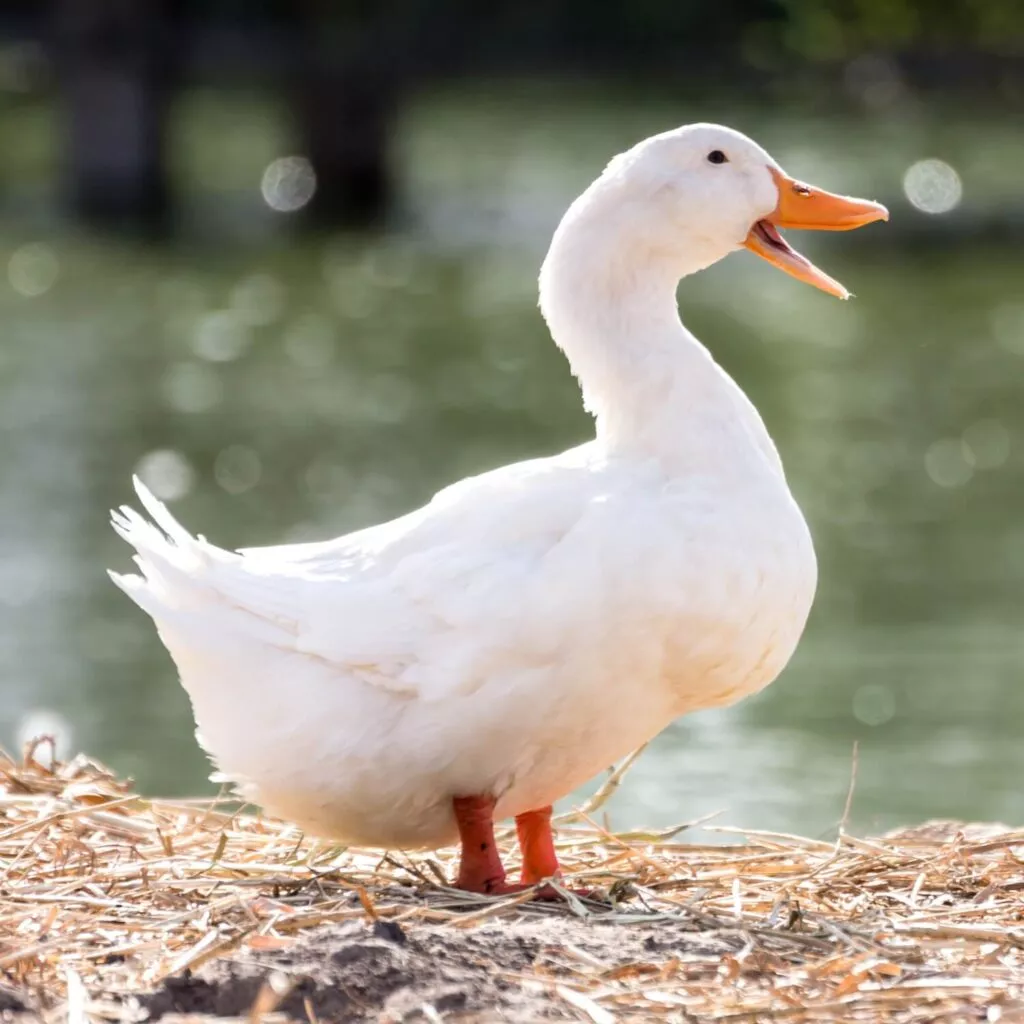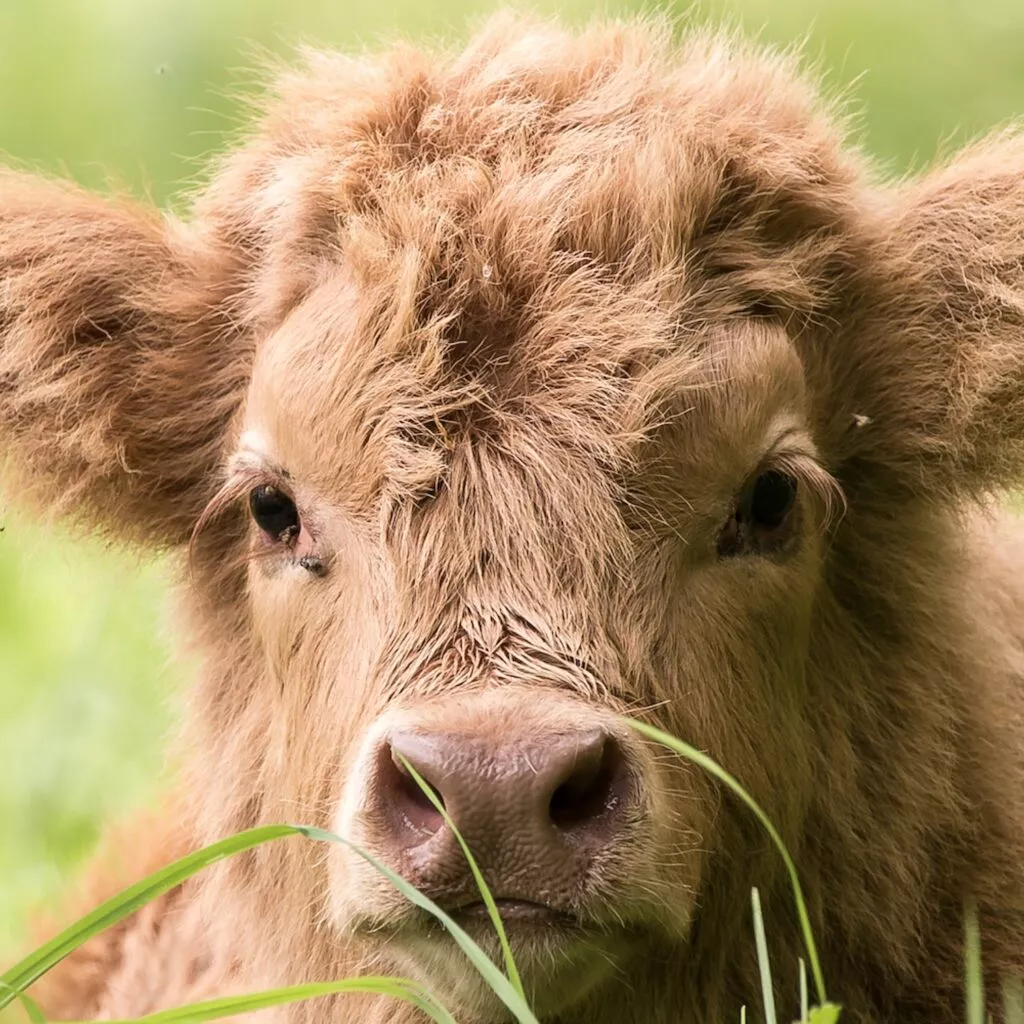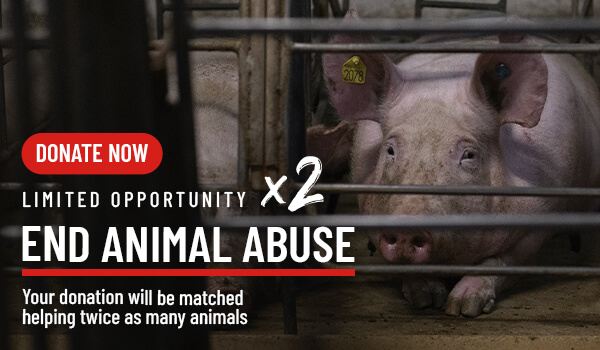The Life of a Chicken: From Birth to Death in Five Weeks
Over 70 billion chickens are killed for their meat every year, which is over eight times the size of the human population.
The meat industry relentlessly seeks ways to cut costs and boost profits.
Factory farms are crammed full of chickens who are confined into small, barren spaces.
Worse still, the chickens have been selectively bred over time to grow unnaturally quickly, so the industry has more meat to sell and more money to make.
In 1925, chickens reached a ‘slaughter weight’ of approximately 1.1kg at 16 weeks old.
However, today’s chickens reach a staggering weight of around 2.2kg in just five weeks.
This exponential increase in growth rate comes at a tremendous physical and psychological cost to these thinking, feeling beings. Their minds and bodies buckle under the strain of their abnormally large bodies.
According to researchers at the University of Arkansas, if humans grew at the same rate, newborn babies would weigh 300kg just two months after birth!
Just imagine what this life would be like…
Diary of a ‘faster-growing’ chicken
I’m Maisie. Born in the UK, I was born and bred into the ‘chicken meat’ industry.
My story is not unique – it is just like the hundreds of millions of others who are slaughtered here every year.
But it is important.
Will you read my story?
Week 1 (185g)
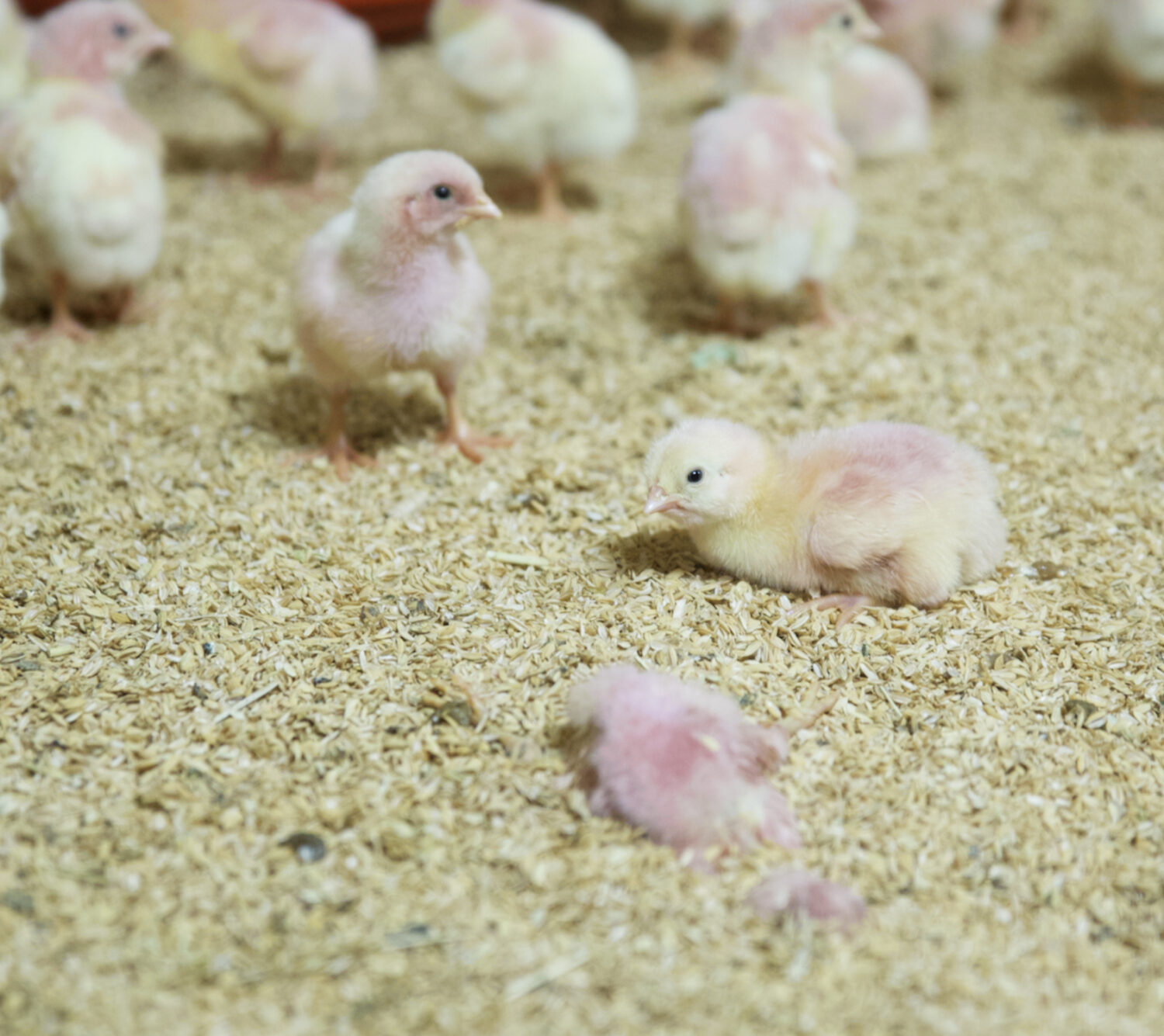
I am born into a cold hatchery, a place where eggs are ‘produced’ artificially en masse.
After being alive for just one day, instead of feeling the warmth of my mother’s feathers, I am grabbed by clumsy hands and sprayed with a vaccine – the first of many drugs that will be given to me in the coming weeks.
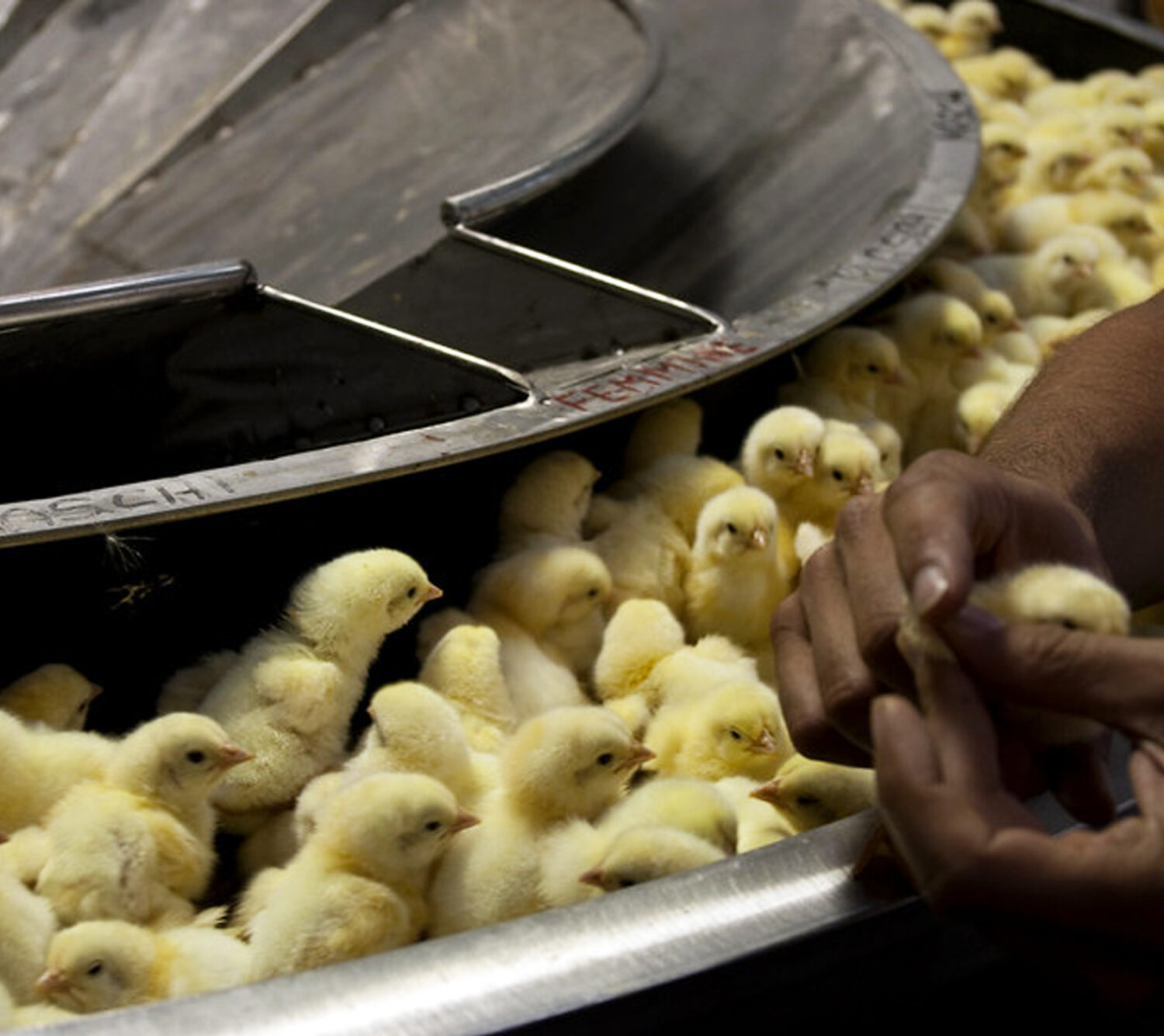
Next, I am carelessly chucked onto a conveyor belt, packed onto a truck crammed full of other chicks and taken to a shed where I will live out the rest of my days.
I look up and see that some newborn chickens have fallen off the conveyor belt and are being crushed under the feet of workers. I’m afraid the same thing will happen to me too.
But I manage to survive the journey and arrive in one piece at my new destination. For a moment, I count myself lucky for that – although it’s really overcrowded and noisy – at least I am still alive. I look around for warmth and comfort but the thousands of other chicks surrounding me look as scared as I am…
I want to sleep but with artificial lights turned on almost permanently and the deafening sound of chirping, it is impossible. Is it normal to always feel so tired?
Week 2 (465g)
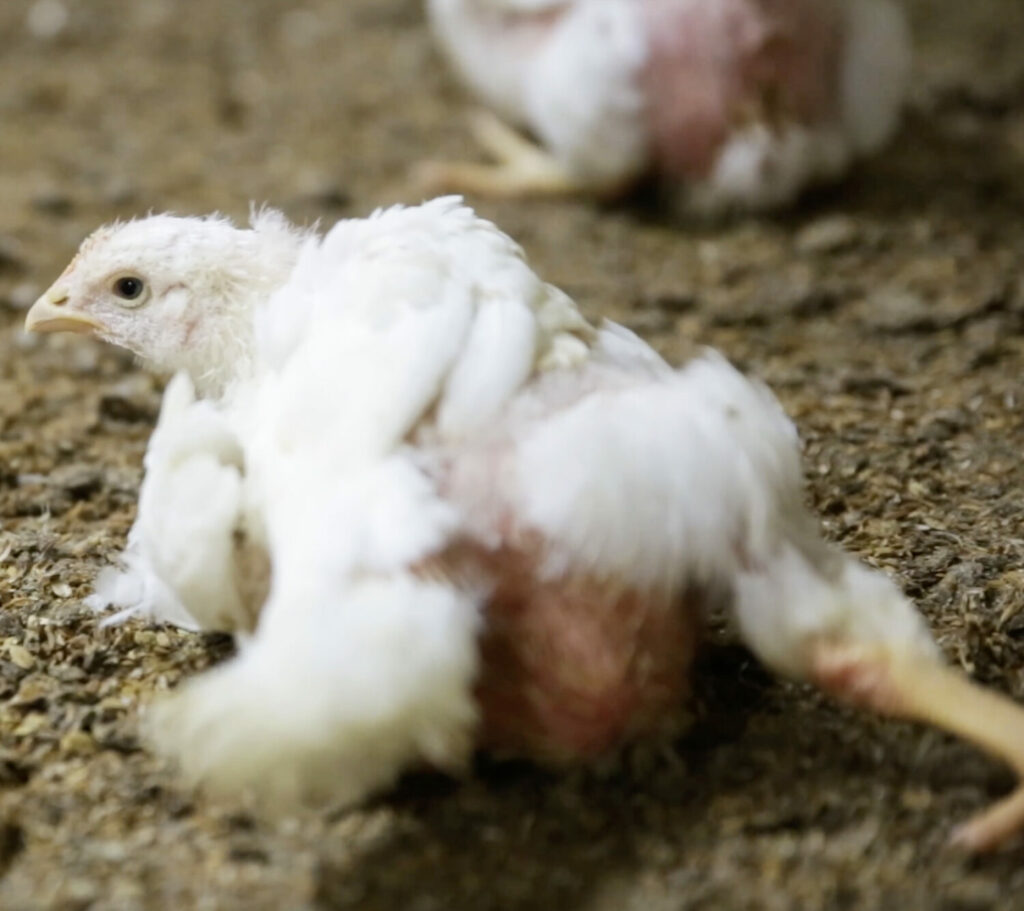
My surroundings grow more suffocating by the day. The air is thick with the stench of excrement and I am starting to feel weaker and weaker. I feel like I am being squeezed into a shrinking space. I’m heavy and sluggish.
I looked around at my peers and it suddenly dawned on me that we are all A LOT bigger compared to when we first arrived. I thought to myself – how have we all grown so fast?
I then look at them more closely and notice that many of them are injured. Some have red, raw burns on their skin caused by the urine-soaked ground. Others seem resigned to not moving anymore and just stare into space.
It hurts me so much to see them suffer like this, but, like them, I am completely helpless – I worry that I too will soon find myself in the same condition.
Week 3 (943g)
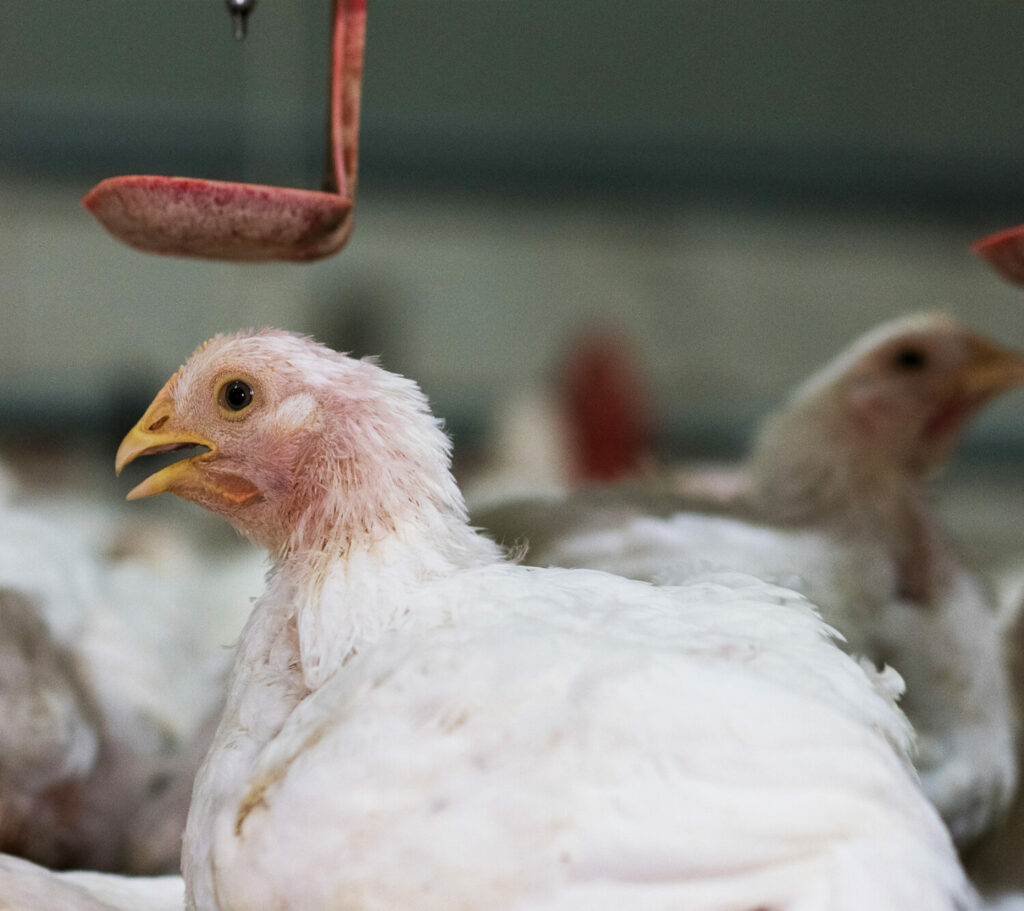
I am almost a kilo in weight.
I am now finding it difficult to get off the ground. I can hardly get water and food. My legs don’t feel normal and are buckling under the strain of my body. Every time I want to drink or eat, it takes so much energy.
The supply of water and food is completely automated and, tragically for some chicks, this is the cause of their death.
The troughs and feeders are placed at a height that is too high for them to reach. They are deliberately deprived of water and food, apparently considered too sick or too small to be worth saving.
More and more of us are starting to get sick. Chicks are collapsing left, right and centre. This morning alone, I counted dozens of dead bodies.
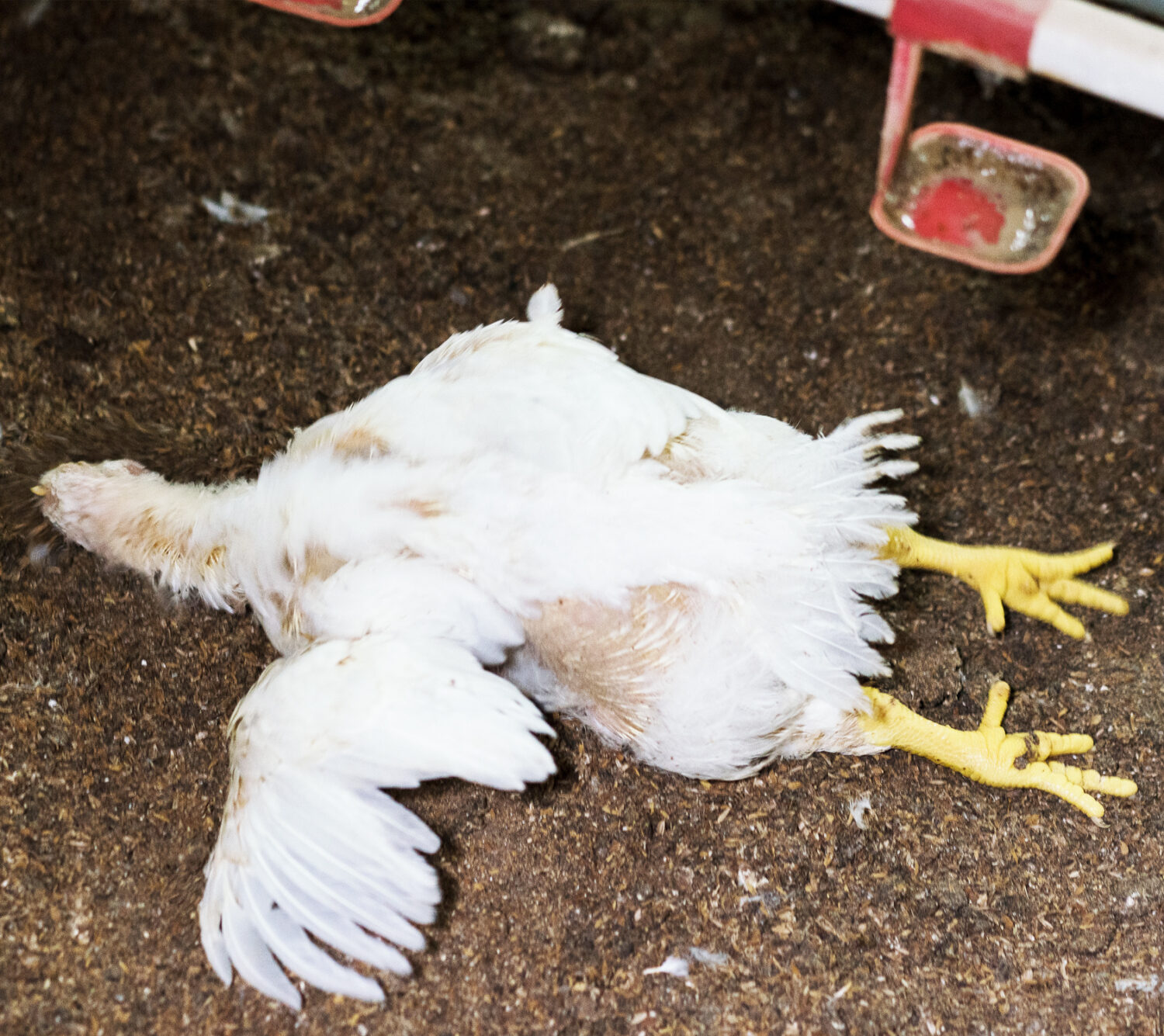
We are in pain, but we are not receiving proper veterinary care; I’ve heard that this is because it’s too expensive and our lives are worth too little.
Week 4 (1.5kg)
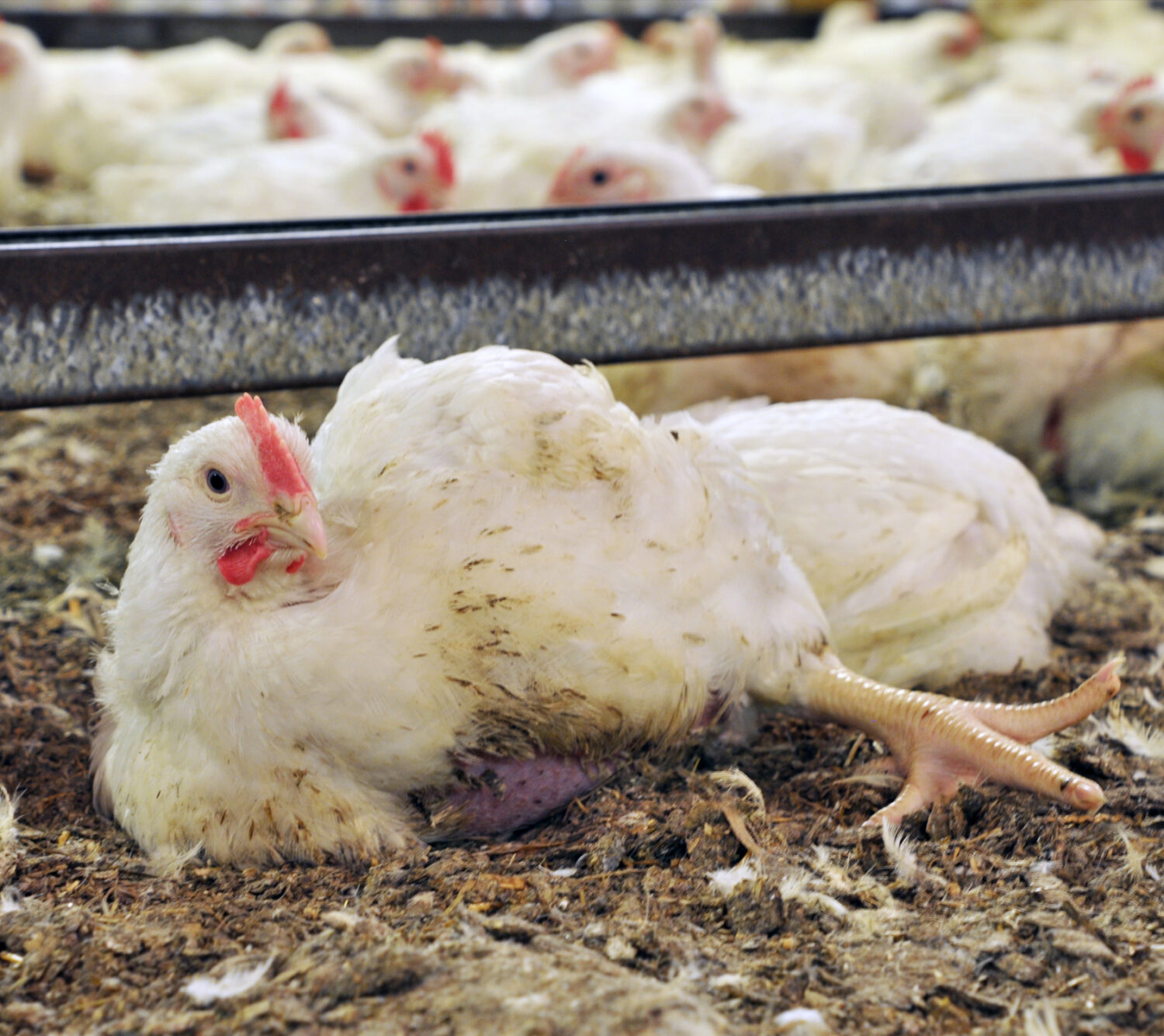
Many think I’m an unintelligent animal, but that’s not the case at all.
One of the things that I do particularly well is remember. I remember very clearly what I was like when I came out of the hatchery, just four weeks ago, and I can feel what I am now…
My body has ballooned beyond recognition and I know this because I barely recognise my peers anymore!
I don’t feel very well and I am finding it hard to breathe. The shed is growing hotter and more oppressive with each passing day.
My body is so heavy that I can barely hold myself up nowadays. My legs ache from the strain.
When I try to get up, I often lose my balance and fall on my back…
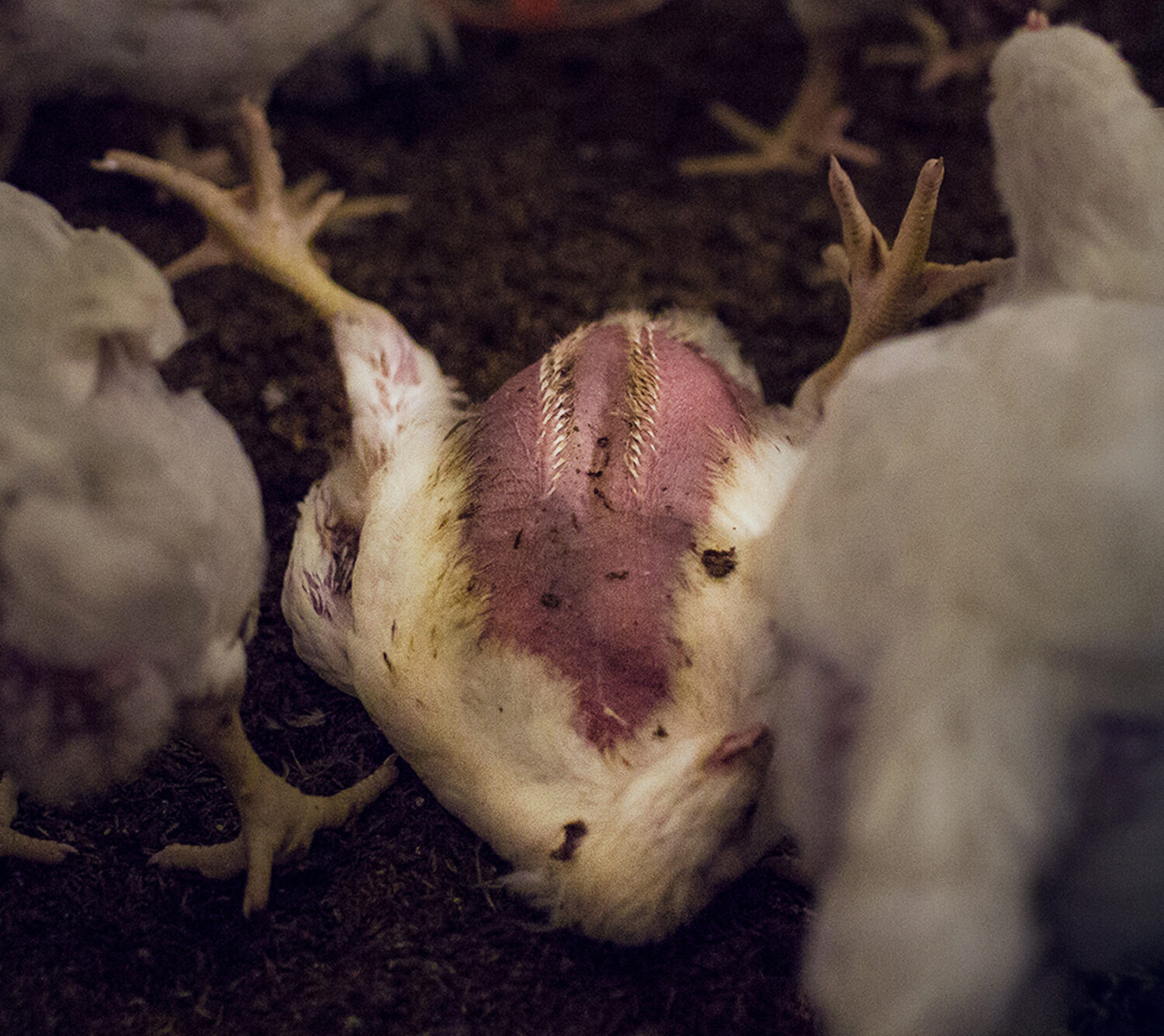
Week 5 (2.2kg)
I am jerked awake, startled by the cold grasp of a massive machine seizing my fragile wings.
Before I can comprehend what’s happening, I’m thrown into a cage, joining countless others on a journey to our final destination.
The trip is torturous. We have no food, nor water – we are all clucking and the noise is deafening.
When we arrive, one by one, we are all panicking, each awaiting our turn to be yanked painfully from our cages and suspended upside down.
Now it’s my turn…
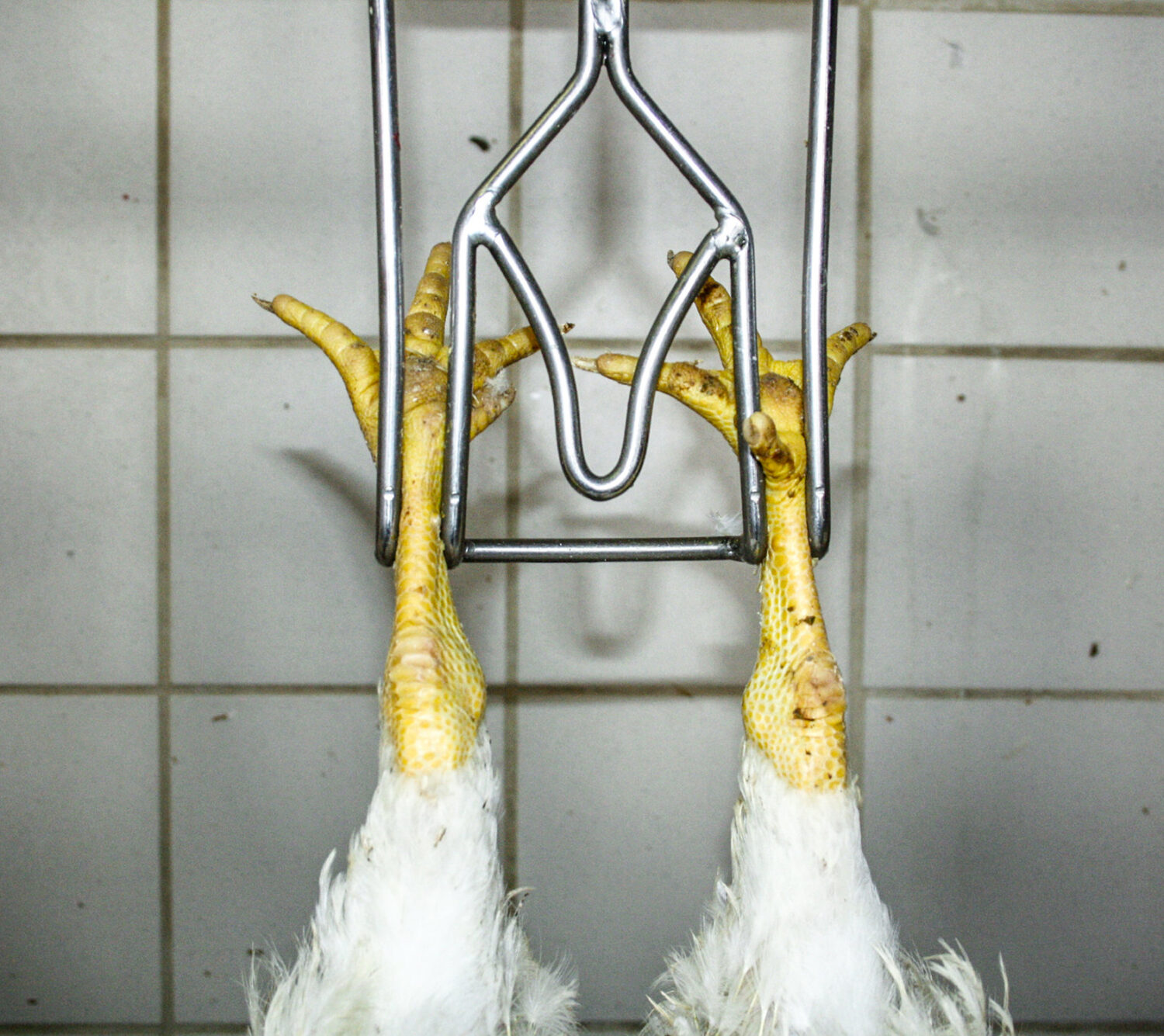
I shudder as I’m hoisted up by my delicate feet, struggling to breathe in the unnatural position. The pain is unbearable.
My head is dipped into electrified water – I’m absolutely terrified. I try to lift my head out so I can breathe once again. I’m confused and disorientated.
The sharp blade is coming towards my neck, glistening in the sunlight, but my legs are shackled and my body is weak. What did I do to deserve this fate?
______________________________________________________________________
Chickens like Maisie did nothing to deserve this. They were simply born into an industry that breeds and slaughters chickens for money.
Her life meant something to her but it was cruelly snatched away as if it meant nothing.
There’s nothing we can do now to bring her back and give her the life she deserved.
But we can still save other chickens like her who, without us, will continue to be forced into miserable existences.
Every second we wait, the further chickens slip back into the hands of the merciless meat industry.
We must act now. Will you save chickens like Maisie from a lifetime of suffering?
Thank you for caring.
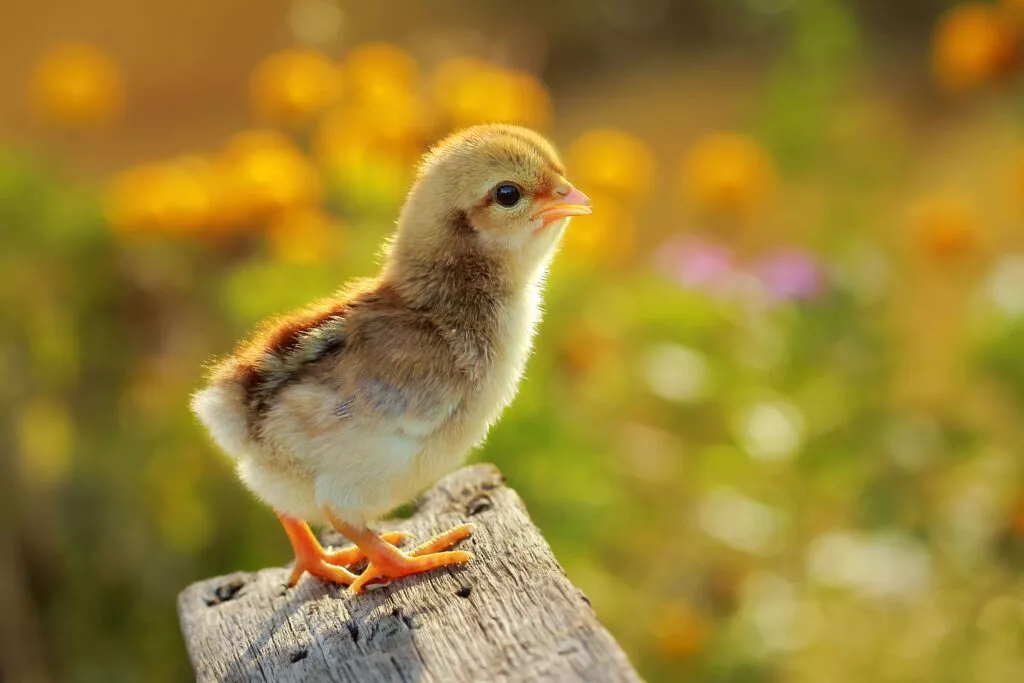
save animals, eat plant based
As a consumer, you hold the power to protect animals from the meat industry. Every plant-based meal saves animals from a life of misery in factory farms and slaughterhouses.
Most Popular
